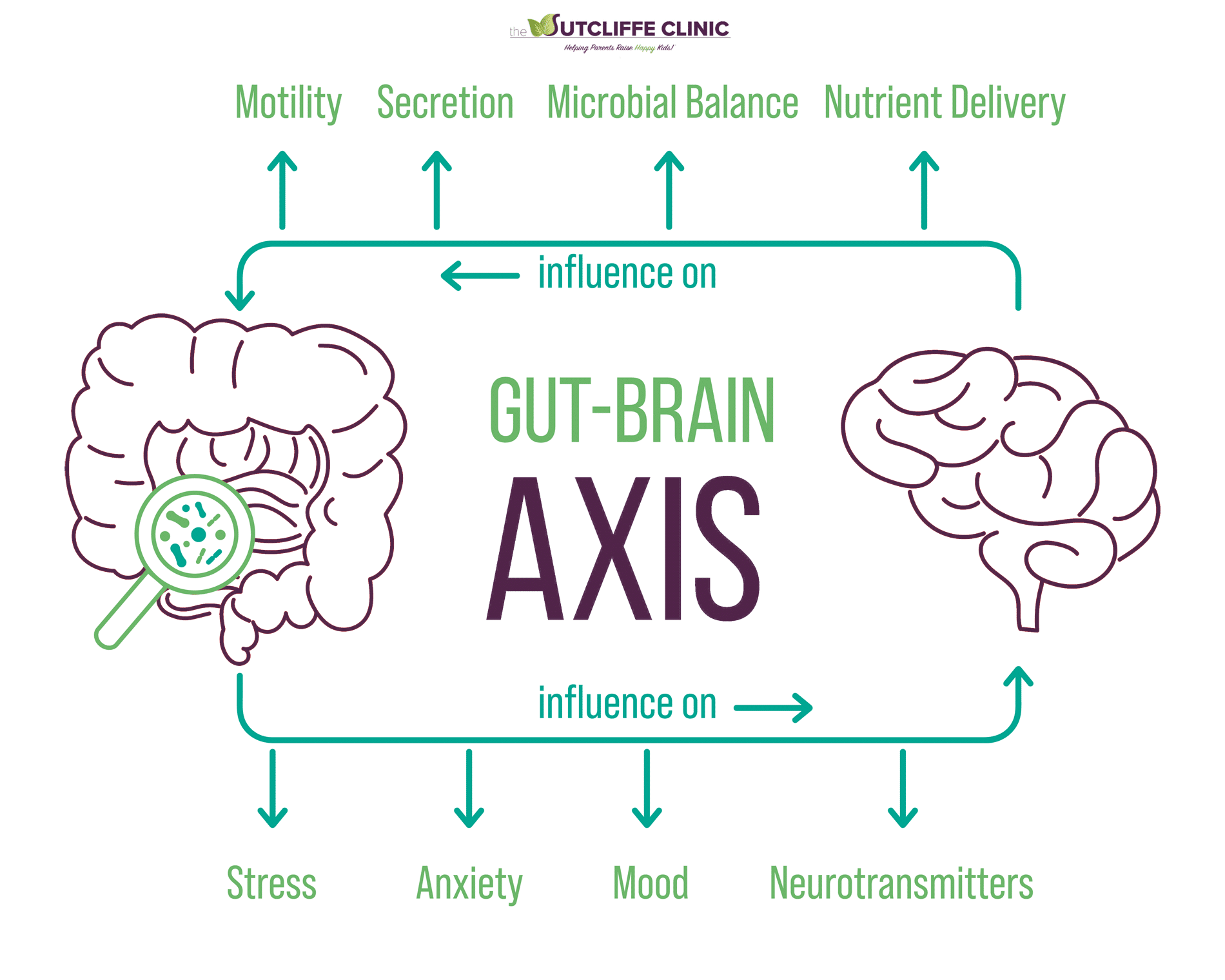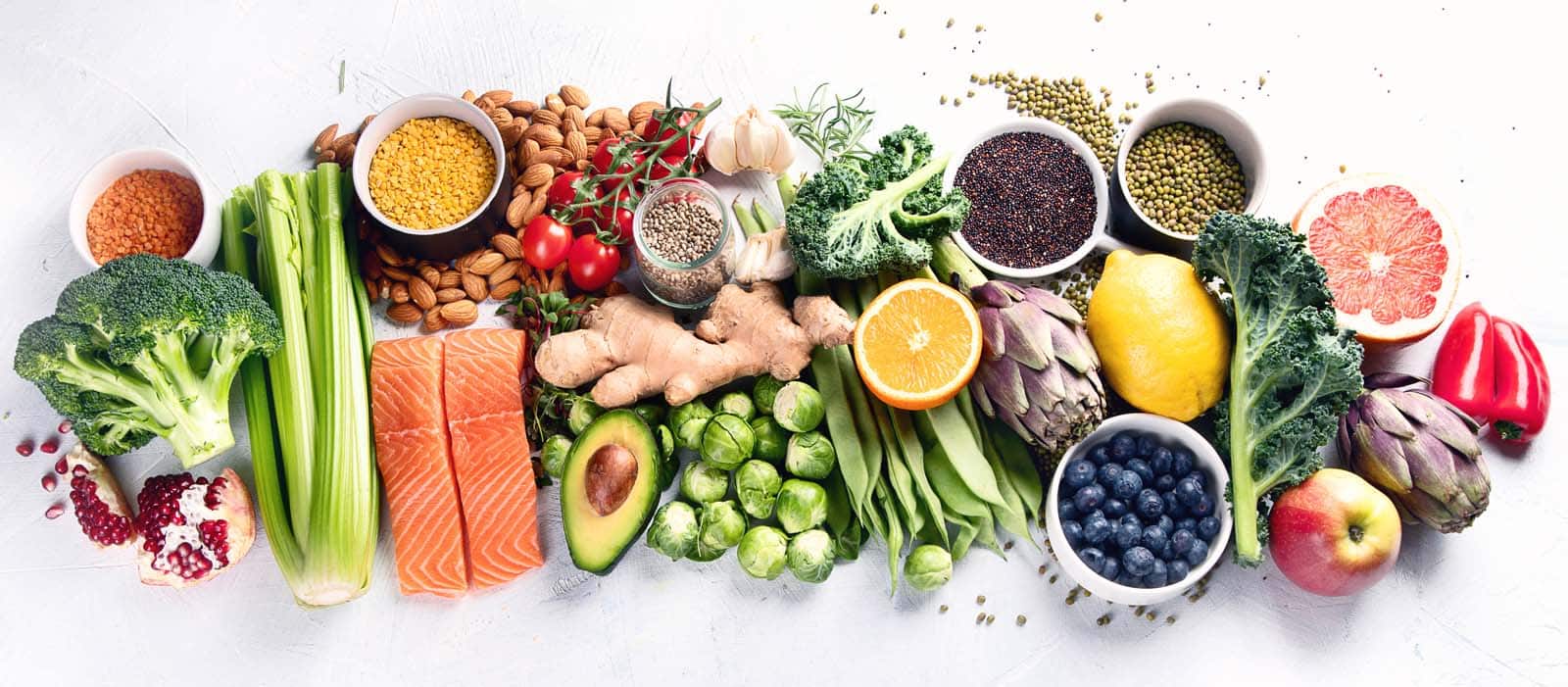While the primary treatment for ADHD is still medication, research is showing that certain supplements can complement these treatments, offering additional benefits. This is significant for people seeking alternatives to conventional medication due to personal preferences or specific health considerations.
Out of all the supplements being studied, three stand out because of their clinical evidence and impact on ADHD symptoms:
Omega-3 fatty acids: Primarily found in fish oil, have shown promising results in improving attention and reducing hyperactivity and impulsivity.
Iron: Essential for neurotransmitter production, especially dopamine, iron supplementation has been linked to improvements in ADHD symptoms, particularly in those with diagnosed deficiencies.
Zinc: Instrumental in dopamine regulation, has been observed to potentially enhance the effectiveness of ADHD medication, reducing the required dosage and addressing symptoms like impulsivity and hyperactivity.
As usual, before starting any supplement, it’s best to talk to a doctor to make sure it’s suitable for you, considering your health needs and any other medications you’re taking.
Also, there are many other considerations you need to make before deciding to implement any supplement in your ADHD treatment plan. If you want to make a more informed choice, read our full overview below.
Supplements versus Medications For ADHD
While ADHD medications are specifically formulated and tested for their efficacy against ADHD symptoms, for a variety of reasons, some people prefer not to take them.
Some supplements may encourage optimal brain health and functioning for people like this. Some of these supplements may relieve symptoms of ADHD, including the characteristic lack of focus, memory issues, emotional dysregulation, and executive dysfunction.
Research into the use of supplements to manage ADHD is still very inconclusive. With that said, there are valid reasons someone with ADHD may want to take supplements to improve their day-to-day functioning:
- They are reluctant to take the stimulant medications often prescribed for ADHD.
- They may want to add to the treatment plan prescribed by their doctor.
- They have other health issues and nutritional deficiencies that the supplement can target.
- Supplements are often cheaper than ADHD medication and don’t require a prescription.
- Supplements tend to have fewer and less severe side effects than psychostimulants.
- There’s less stigma associated with using supplements to treat ADHD than prescription medication.
Whatever your reason for looking into supplements, it’s important to note that supplements are not designed to replace medications and other treatments but instead add to them. We recommend consulting with a healthcare professional on safely incorporating supplements into your treatment plan.

ADHD Overview
Attention-Deficit/Hyperactivity Disorder (ADHD) is a neurodevelopmental disorder that is typically (though not always) diagnosed in childhood and can last into adulthood. Recent research estimates that the global prevalence of ADHD is 7.6% in children and 5.6% in teenagers.
Symptoms
People with ADHD may experience patterns of:
- Inattentiveness:
- Difficulty maintaining attention in tasks or activities
- Forgetfulness
- Frequent, careless mistakes due to lack of attention to detail
- Hyperactivity:
- Fidgeting, tapping, and other self-stimulating behaviors (i.e. stims)
- Excessive restlessness and talking
- Inability to stay seated or still where it is needed
- Impulsivity:
- Difficulty being patient
- Interrupting others in conversations
- Acting without thinking of the consequences
The three types of ADHD are predominantly inattentive, predominantly hyperactive/impulsive, and combined presentation (a mix of the two).
The symptoms of ADHD may present differently across the population based on age, gender, type of ADHD, and other factors. External behaviors associated with ADHD may also reduce or change over time.
Challenges
ADHD impacts cognitive and emotional functioning. As a result, people with ADHD may struggle with:
- Organizing and completing assigned tasks
- Remembering instructions or directions
- Losing or forgetting things often
- Low performance at school
- Frequent job or school changes due to underachievement
- Socializing and maintaining relationships
- Risky behaviors that strain health and relationships
- Adequately assessing risk/danger
- Addiction or addictive behavior
- A higher risk of comorbid mental conditions, especially learning disabilities.
Conventional Treatments
ADHD cannot be cured or prevented, but with a combination of treatments, the symptoms can be effectively managed. Standard treatments for ADHD include:
- Stimulants and non-stimulant medications: Enhance neurotransmitter activity (e.g., dopamine, norepinephrine) to improve focus and attention.
- Psychological counseling and behavioral therapy Help individuals develop skills and strategies for changing behavior. This can include talk therapy and more structured techniques like Cognitive Behavior Therapy.
- Professional, educational, and personal accommodations: Restructures working, learning, and socializing to make it easier for people with ADHD.
- Holistic treatment (e.g., diet, exercise, sleep, etc.): Establishes healthy routines and support for other treatments.
Even with multimodal interventions, the effectiveness of ADHD treatments may vary from person to person. A doctor or physician can prescribe more targeted treatment plans that address your child’s needs.
Understanding Nutrition As It Relates To ADHD Symptoms
The relationship between ADHD and nutrition is still being studied, and there’s no evidence that dietary factors can cause ADHD. However, evidence supports that physical nutrition can influence cognitive activity and, thus, attention, focus, memory, and executive function.
People with ADHD tend to struggle with getting enough and the right kind of nutrients because they might:
- Forget to eat during bouts of hyperfocus
- Hyperfixate on eating only one type of food for an extended period
- Gravitate toward sugary, unhealthy foods to stimulate dopamine release
- Overeat to self-stimulate, especially when dysregulated
- Have sensory issues that cause them to avoid foods with certain textures or smells
- Not feel hungry during the day due to stimulant medication
- Have a comorbidity with an eating disorder (30% of people with binge eating disorder also have ADHD)

Below are some of the most-studied dietary factors about ADHD:
- Water: Dehydration can impair concentration, alertness, and short-term memory, even in the general population.
- Food: Insufficient vitamins and minerals can lead to attention and cognitive function difficulties. Some studies suggest a correlation between increased ADHD symptoms and poor nutritional intake.
- Glucose: Glucose is the brain’s main energy source, so fluctuations in blood sugar levels can impact the production of serotonin and dopamine, two of the neurotransmitters most closely associated with ADHD.
Some research suggests a link between impaired glucose metabolism and ADHD.
A healthy diet for people with ADHD includes protein, complex carbohydrates, and omega-3 fatty acids. It’s best to avoid simple carbohydrates, sugary foods, unhealthy fats, and excessive caffeine.
Remember that individuals may respond differently to the same nutritional intake, so consulting with a registered nutritionist or dietician is essential to determining your dietary needs. Also, as more research is poured into this, the understanding of the relationship between ADHD symptoms and nutrition may change.
The Science Behind Supplements And ADHD
With no scientific consensus, more research is needed to determine whether supplements can effectively address ADHD symptoms. However, nutritional deficiencies can affect behavior, which is why some researchers believe that supplements might help manage ADHD, a behavioral disorder.
The “gut-brain axis” describes the bidirectional communication between our gut and central nervous system, linking inflammation and other gut issues with several mental illnesses like anxiety and depression.

Plenty of research finds that eating nutritious meals helps our brains function. A well-balanced diet rich in essential nutrients plays a pivotal role in cognitive health, potentially influencing ADHD symptoms. Nutrients such as omega-3 fatty acids, zinc, iron, and magnesium have been examined for their role in brain health and ADHD.
Doctors still recommend getting a majority of your nutrition from food, which may contain other vitamins and minerals that keep you healthy. That said, supplements may be especially useful to those with ADHD as they make it easier to get your daily recommended intake. This is particularly relevant when dietary restrictions, food allergies, or lifestyle choices limit the intake of certain nutrients.
Of course, there are some important limitations to remember:
- Taking more than the recommended levels of certain nutrients can be harmful to your health.
- Supplements typically take longer to take effect and may not be as effective.
- Supplements may have dangerous interactions with certain medications. There’s also not enough research into the interactions between supplements and pharmaceuticals.
- Supplements don’t have to be approved by the FDA, so they may have inconsistent dosing or unsafe ingredients.
- Studies involving supplements may not use the proper methodology (e.g., double-blind, placebo/control groups).
Types Of Supplements For ADHD

Omega-3 Fatty Acids
- Recommended daily intake: 1.1-1.6 g
- Food sources: Walnuts, chia/flax seeds, and certain fish (e.g., salmon, herring, trout, sardines, mackerel)
One of the most-studied ADHD supplements, omega-3 is a type of polyunsaturated fatty acid (PUFA) that is essential for neurotransmitter and overall brain function.
Several studies and meta-analyses found small to medium improvements in ADHD symptoms, especially inattention, after administering fish oil supplements containing eicosapentaenoic acid (EPA) and docosahexaenoic acid (DHA), two crucial components of brain cell membranes.
The side effects of omega-3 tend to be mild and include headaches, bad-smelling sweat or breath, unpleasant taste, and gastrointestinal issues like nausea, heartburn, and diarrhea.
Iron
- Recommended daily intake: 8-15 mg
- Food sources: Shellfish, liver, red meat, green vegetables (e.g., spinach, kale, broccoli), eggs, beans, nuts, legumes
As it’s involved in the function and synthesis of neurotransmitters like dopamine, low iron levels can be particularly problematic for brain function and has been linked to ADHD symptoms. A 2020 review of related literature found at least four studies where iron supplementation helped relieve hyperactivity, impulsivity, and other symptoms of ADHD.
That said, too much iron can cause cell damage – the highest dose a human can safely consume is 45 mg daily. Only take iron supplements if you have a diagnosed iron deficiency.
Zinc
- Recommended daily intake: 8-11 mg
- Food sources: Shellfish, seafood, red meat, dairy, beans, nuts, grains, fortified cereal
Zinc helps regulate dopamine, so some studies look into the association between ADHD and zinc deficiency. While there’s no evidence linking the two, there’s some positive research indicating how zinc can be useful in an ADHD treatment plan.
According to some studies, combining zinc with psychostimulant medication can reduce how much of the stimulant needed to produce optimal results by as much as 40%. Researchers also noted a drop in impulsivity and hyperactivity, though without much change to inattention.
Like iron, consuming too much zinc can cause health problems and even be fatal. Do not take zinc supplements without guidance from a healthcare professional.
Magnesium
- Recommended daily intake: 350-420 mg
- Food sources: Cashews, avocados, dark chocolate, whole grain brown rice
Magnesium regulates neurotransmitters and has a calming effect on the nervous system, potentially reducing hyperactivity, agitation, and other externalizing behaviors associated with ADHD, especially in adolescents. However, there is limited research into magnesium-only interventions and current studies do not support magnesium treatments for ADHD without further evidence.
Consuming more than the recommended daily intake of magnesium from food carries little risk, as the kidneys eliminate any excess in urine. However, getting high doses via supplements can cause diarrhea, nausea, and stomach cramps.
Probiotics
- Recommended daily intake: 10-20 billion colony-forming units (CFU)
- Food sources: Fermented foods (e.g., yogurt, kimchi, kombucha, sauerkraut, sourdough bread, some cheeses)
Probiotics promote and restore healthy gut microbiota, which is connected to brain health via the gut-brain axis. Emerging research shows that gut bacteria can produce neurotransmitters in the brain, improving cognitive function, immune system function, and neurodevelopment.
The most common side effects associated with probiotic use are headaches, bloating, gastrointestinal distress, and allergic reactions. But while probiotics are generally safe, there is a small risk of adverse side effects and serious infections for people with weaker immune systems.
L-Theanine
- Recommended daily intake: 200-400 mg
- Food sources: Certain mushrooms, green and black tea
An amino acid commonly found in tea leaves, l-theanine can produce relaxing and calming effects without causing drowsiness. Some studies suggest it can improve attention span, alertness, focus, and overall cognitive performance by modulating glutamate receptors and increasing gamma-aminobutyric acid (GABA) levels, especially when combined with caffeine.
Pycnogenol
- Recommended daily intake: 1 mg/kg of body weight
- Food sources: Red wine, grapes, cranberries, apples, cocoa
A patented extract of pine or witch hazel bark, Pycnogenol has anti-inflammatory and antioxidant properties. It could reduce oxidative stress and improve blood flow, cognitive function, and hand-eye coordination thanks to its neuroprotective effects.
Melatonin
- Recommended daily intake: 1-5 mg
- Food sources: Milk, eggs, nuts, fish, rice, oats, chamomile tea
People with ADHD tend to struggle with insomnia and other sleep disorders. A lack of quality sleep can intensify ADHD symptoms such as anxiety, brain fog, inattention, restlessness, and daytime sleepiness. While there’s no proof of its direct impact on ADHD symptoms, melatonin regulates the sleep-wake cycle, helping people get more and deeper sleep. This makes it easier to manage ADHD symptoms.
Supplements Can Be The Answer For Some With ADHD
In light of the ongoing discussion around ADHD treatment, it’s important to recognize that while medications are specifically formulated for efficacy, supplements can serve as a complementary approach.
For those who are reluctant to take traditional ADHD medications, nutrients such as omega-3 fatty acids, zinc, iron, and magnesium, found both in food and supplement form, could offer potential benefits in managing ADHD symptoms.
However, these supplements are not designed to replace prescribed treatments. They should be seen as an adjunct, enhancing a broader treatment plan. It’s essential to consult healthcare professionals to ensure these supplements are integrated safely and effectively into your ADHD management strategy.
Any supplement regime needs to consider individual health needs and potential medication interactions. This balanced approach is crucial for anyone exploring supplements as a part of their ADHD treatment plan.
